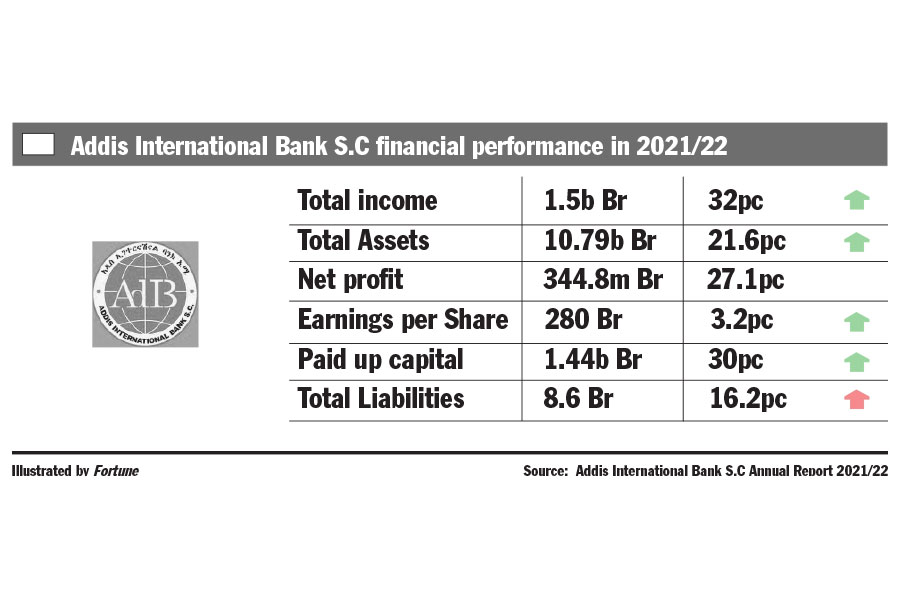
Fortune News | Jun 04,2022
May 2 , 2020
By FASIKA TADESSE ( FORTUNE STAFF WRITER )
The new electronic transaction bill proposes the formation of the national Digital Economy Council, which will be tasked with advising the government on building an economy that is based on digital computing technologies.
Drafted by the Ministry of Innovation & Technology, the proclamation declares that the Council will be instrumental in advising the government about the process of transforming into a digital economy. The Council will also oversee the legislation process of laws for e-transactions and e-government services.
Members of the Council, which includes the Minister of Innovation & Technology, will be named by the Prime Minister. The Prime Minister will also appoint the chair of the Council that will have the Minister of Innovation & Technology as a secretariat.
The bill, which was tabled to the lawmakers at the end of last week, also outlines the legal foundation for the government and private institutions to start offering digital services, mainly the provision of e-commerce and e-government services. It also aims to help the country replace business transactions that are conducted through paper money with electronic-led transactions.
The bill has been in the making for about a year and was prepared in collaboration with the National Bank of Ethiopia (NBE) and the ministries of Revenues and Trade & Industry. It enables the country to practice the sale or purchase of goods or services over computer-mediated networks and enables public organisations to use information and communication technologies for their activities and services. It also involves digital signatures and seals.
Out of the total services provided by public offices, 175 of them are planned to be under e-gov. And so far, 70 services that are provided by 10 public offices are operational. However, these services do not include a digital payment transaction option.
There are four pillars the government has aligned to make progress toward a digital economy: infrastructure development, arranging the technology, crafting policies and laws, and creating a digital society, according to Ahmedin Mohammed (PhD), state minister for Innovation & Technology, which expects 70pc of the society to use digital transactions in five years.
"On the road to the current reforms," said Ahmedin, "we believe the country has to take leapfrog steps so that Ethiopia can become an active player in the digital economy."
The proclamation will serve as a digital medium for all existing legal frameworks on trade, taxation, authentication of documents, signature seals, witnesses, digital payments, consumer protection and data integrity. The bill is also aimed at transitioning the paper-based Federal Negarit Gazeta, an official gazette for the publication of all federal laws, into a digital platform.
However, it does not work for laws and documents that require paper and handwritten signatures such as death and marriage certificates, wills, court warrants, power of attorney documents and forms required for the transfer of immovable collateral.
It is a long-overdue action, according to Tewodors Tassew, a fin-tech expert with a decade of experience.
"It shouldn't have taken this long, because this proclamation is vital to awakening the private sector to engage in the digital economy by laying out the necessary framework," he said. "The private sector can roll out different products; hence it's a progressive step to see fresh new products."
The expected challenges include the high level of dependency on infrastructure, software and IT staff, which require attention, recommends Tewodors.
The Ethiopian Communications Authority, the newly formed telecommunications and radio frequency regulatory body, has the mandate to administer the country's top level domain (.et). The Authority is also in charge of registering and issuing a license for companies that register domain names.
Ethio telecom was in charge of issuing domain names previously, while the Ministry of Innovation & Technology is mandated with administering (.gov) domain names.
Ethio telecom has been administrating the domain names since it has been the only operator in the country. However, following the ongoing liberalisation process of the telecom sector, which will welcome two more operators soon, the mandate of the central registry switched to the regulatory agency.
"We've already organised a dedicated department that will oversee the domain name administration," Balcha Reba, director-general of the Authority, told Fortune.
The Ministry has formed a dedicated division that will be working on creating digital awareness among the public through a digital campaign and assigning agents to areas with technology deprived communities, according to Ahmedin.
Muluneh Bayabill, an attorney currently studying business law at Addis Abeba University, advises the government to strengthen its legislation capacity by having prudent regulations and proper e-commerce laws in place.
As e-commerce has a multitude of legal aspects in a broad spectrum of matters such as contract formation, taxation, consumer protection, dispute settlement, intellectual property, privacy and criminal issues, it needs a prudent set of laws, according to Muluneh.
"Ethiopia has so far only enacted compartmentalised pieces of legislation that have relevance to e-commerce governance," said Muluneh, "yet the country needs to have a comprehensive law soon to address all the legal aspects of it."
The cyber threat is not something a government can get rid of completely in any country, according to Ahmedin.
"But strengthening our capacity with professionals and increasing our monitoring ability is important, and this is where the Information Network Security Agency (INSA) plays a great role," he said.
In the session, which was attended by 350 members, the parliament directed the bill to the Human Resource & Technology Standing Committee for further review.
PUBLISHED ON
May 02,2020 [ VOL
21 , NO
1044]

Fortune News | Jun 04,2022

Fortune News | Jan 07,2023

Radar | Jun 12,2021

Fortune News | Nov 23,2019


Radar | Jun 03,2023

Radar | Mar 16,2019

Radar | Nov 09,2019

Radar | Dec 16,2023

News Analysis | Apr 22,2023

Dec 22 , 2024 . By TIZITA SHEWAFERAW
Charged with transforming colossal state-owned enterprises into modern and competitiv...

Aug 18 , 2024 . By AKSAH ITALO
Although predictable Yonas Zerihun's job in the ride-hailing service is not immune to...

Jul 28 , 2024 . By TIZITA SHEWAFERAW
Unhabitual, perhaps too many, Samuel Gebreyohannes, 38, used to occasionally enjoy a couple of beers at breakfast. However, he recently swit...

Jul 13 , 2024 . By AKSAH ITALO
Investors who rely on tractors, trucks, and field vehicles for commuting, transporting commodities, and f...

Nov 1 , 2025
The National Bank of Ethiopia (NBE) issued a statement two weeks ago that appeared to...

Oct 25 , 2025
The regulatory machinery is on overdrive. In only two years, no fewer than 35 new pro...

Oct 18 , 2025
The political establishment, notably the ruling party and its top brass, has become p...

Oct 11 , 2025
Ladislas Farago, a roving Associated Press (AP) correspondent, arrived in Ethiopia in...